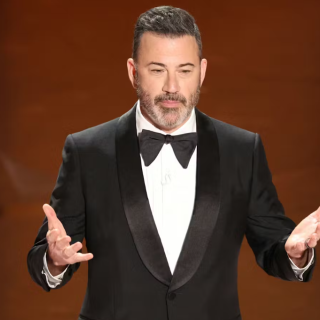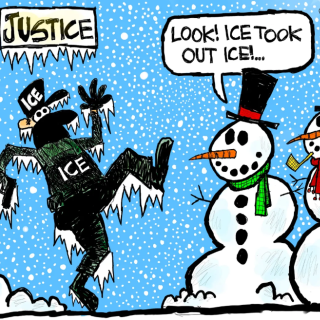Back in the mid-sixties, in the heady days of Lyndon Johnson’s ‘Great Society Program,’ I was working in my first job out of college as an ‘intergroup relations professional’ at the Detroit Commission on Community Relations. I spent my days helping to enforce newly enacted ‘open housing’ and ‘equal opportunity’ ordinances designed to begin reversing centuries of injustice against African Americans in the Motor City.
With two sociology degrees focused on race relations on my vita, I was assigned to design and facilitate a program of ‘racial sensitivity training’ for Detroit’s entire -notoriously racist - police force. The program was funded under the then newly created Federal Office of Equal Opportunity.
I thus had the dubious pleasure of spending a whole summer closeted with successive contingents of ‘Detroit’s Finest’ – three sessions a day, six days a week, for eight weeks. The program was compulsory. The officers were required to listen to presentations on various race-related topics, do roll-playing exercises and take part in discussion groups facilitated by myself and other colleagues on the Commission staff, most of them Black.
Disaster almost struck on the first day when I opened with a brief lecture on the history and structure of Black oppression in the United States. A few minutes into my talk, an officer in the back of the room stood up waving his pistol and shouted, “I don’t care what you say, niggers love filth and they’re going to wallow in it no matter what we do!”
Shouts of agreement broke out around the room. The commanding officer in charge ordered me to wait outside in the hall while he got control of his men. I modified my presentation style and the workshops continued, despite much grumbling and eye-rolling from the reluctant participants.
Eight grueling weeks later, all the members of the force got their fancy sensitivity training graduate certificates. After the completion ceremony, Sargent Bill Sheehan, one of the most overtly racist officers on the force, offered to drive me back to my office. Ironically, he was the brother of one of my bosses on the Commission, a prominent Detroit civil rights leader, Fr. James Sheehan.
I accepted his offer, feeling elated that the program might have had a positive effect on a hard-core bigot like him. But as we drove, he said to me, “Remember that first day when that big black nigger got up and said how oppressed they had been and how they were going to take over the world?”
I thought back. None of my African American colleagues from the Commission had been in the room that day. “Bill,” I said, “that was me.” “No,” he insisted vehemently, pointing down at his boot, “He was as black as my shoe.”
So much for sensitivity training changing racist perceptions.
Despairing of racial reform, I left the country soon after to study in the UK, and watched with consternation from abroad months later as uprisings erupted in Detroit and cities across the country in response to the April 4, 1968 murder of Dr. Martin Luther King. A poster I saw one day taped to a light pole beside a canal in Amsterdam had a picture of a gas-masked National Guardsman holding a bayonetted rifle standing in front of a burned-out shop in a Detroit neighborhood where I had once done community organizing.
That was over half a century ago. Today, as I see the reports of the current rebellions unfolding daily across the country in response to the on-camera murder of Floyd George, I feel deep anger, sorrow and discouragement that things have actually gotten so much worse since my naive youthful attempt at police reform those many years ago.
That’s because, as I learned in my Detroit experience, racism and oppression are baked into the system and have been from the git-go. Historically, police have consistently been used to oppress dissident working people and minorities. As Robber Baron Jay Gould infamously put it over a century ago, “I can always hire half the population to shoot the other half.”
In the intervening decades since my Detroit days, the encouraging gains in civil and voting rights of the sixties and seventies have been rolled back. MLK’s dream has turned into a nightmare. Minority disenfranchisement is rampant and blatant. The ‘New Jim Crow’ for-profit prison system so starkly described by Michelle Alexander in her 2010 book has made the U.S. the world leader in incarceration – especially of black and brown people. Police and prison guard unions have grown monstrously powerful, immune from oversight or prosecution. Shaky cell phone footage of police publicly executing Black people on a daily basis has become a new media genre.
Meanwhile, despite the rise of the Black Lives Matter movement, militant white supremacy is on the march, encouraged by a racist sitting President. Joe Biden, the presumptive Democratic Party presidential candidate – who helped legislate our present ‘incarceration nation’ into existence – is calling for even more police funding. In a recent USA Today op ed he called for police departments to receive an additional $300 million to, as he put it, “reinvigorate community policing in our country.” No disagreement from his opponent Trump, who says, “We have to respect our police. We have to take care of our police. They’re protecting us.”
The militarization of every day life which has been spun off from America’s permanent war economy has further institutionalized a national culture of violence. Police forces are largely staffed by former U.S. military personnel, who have been highly trained by the government to brutalize and kill. Many of them have been originally recruited to the military from low-income white communities already steeped in sub-cultural racial bias.
But it gets worse.
Ongoing police training exchange programs between Israel and the U.S. indicate that the lessons learned by Israelis about how to oppress an occupied Palestinian population are being shared with urban U.S. police forces…and vice versa.
Back in April of 2018, Durham, South Carolina became the first U.S. city to ban their police force from training exchanges with the Israeli military.
‘On Monday, around 50 US police officers arrived in Israel to meet their law enforcement counterparts and engage in a series of meetings and training exercises in what the Israeli media has described as “strengthening the domestic security cooperation between the two allied nations.”’ So reads the lead-in to a 2019 article in the Middle East Eye.
Authoritarian regimes trading tips on population control? Not a good sign.
In this environment, calls for reform or disbanding of U.S. police forces ring hollow for me. Entrenched police culture has historically proven to be robustly resistant to accountability or reform.
The effect a growing population of suddenly unemployed, disgruntled former police officers would have on this already fracturing society would probably follow the pattern set in motion in Iraq when the American occupiers disbanded the military. Imagine roving vigilante bands of angry former cops taking their revenge on the public who got them fired. Not a pretty picture.
Nevertheless, against all odds, a stubborn part of me wants to feel cautiously optimistic. Maybe, somehow, now that the deep-seated, fundamentally racist nature of U.S. society is revealed to the world in all its ugliness and injustice, just maybe real change can finally come.
The iconic scholar and activist Angela Davis calls this ‘an extraordinary moment.’ She says, in a Democracy Now interview, “…one never knows when conditions may give rise to a conjuncture such as the current one that rapidly shifts popular consciousness and suddenly allows us to move in the direction of radical change. If one does not engage in the ongoing work when such a moment arises, we cannot take advantage of the opportunities to change. And, of course, this moment will pass. The intensity of the current demonstrations cannot be sustained over time, but we will have to be ready to shift gears and address these issues in different arenas, including, of course, the electoral arena.”
The irrepressible Ralph Nader – with decades of contrarian campaigning under his belt - is no naïve idealist as he watches the current racial justice movement surge. He asks, “How then can this current moral force avoid dissipation once the media loses interest and the protesters become exhausted? How can such widely praised demonstrations produce real change?”
His optimistic answer, intended to empower: “Seize the movement. Immediately secure funding from enlightened or guilt-ridden wealthy residents of these cities to form full-time citizen watchdog groups leveraging the reforms demanded by the protesters. Some permanent presence must be established to thwart the status quo ante. That’s what seizing the moment means…. These are seeds for a strengthened, enlarged democracy of justice, freedom, and equality.”
Black Agenda Report’s Glen Ford puts it this way in a recent article, “Having not yet won real power over the police, this is no time for a lull or a truce -- it’s time to sharpen our political instruments and deepen the mass movement’s social penetration.”
May it emphatically be so!
Remembering my Detroit experience, I’m not holding my breath, but we have to hope and work toward radical reforms being successful.
I think it was the late, great civil rights organizer Stokely Carmichael who had the prescience to warn us, “Non-violent protest only works if your oppressor has a conscience.” Let’s hope they do.
Because, as visionary author James Baldwin famously put it, if reforms don’t work, its “the fire next time.”
---------------
James Heddle co-directs EON – the Ecological Options Network, EON3.org



